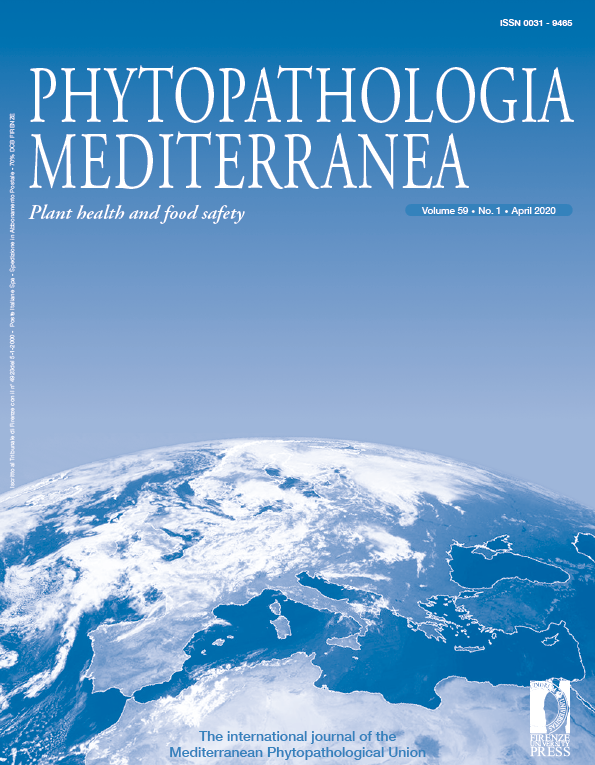Essential oil from fennel seeds (Foeniculum vulgare) reduces Fusarium wilt of tomato (Solanum lycopersicon)
Published 2020-03-13
Keywords
- Antifungal activity,
- defence related genes,
- plant disease,
- phytochemicals,
- RT-qPCR
How to Cite
Abstract
Natural products have been considered a viable alternatives for managing plant diseases. This study investigated in vitro and in planta antifungal activity of an essential oil from fennel seeds against Fusarium oxysporum f. sp. lycopersici (FOL). The essential oil inhibited FOL in vitro mycelium growth by up to 83% and sporulation by up to 97%. Protective effects against Fusarium wilt were observed in planta, especially when the oil was applied curatively at a concentration of 500μl mL-1. The fennel essential oil reduced disease severity from 98% in untreated FOL-inoculated plants to 57% in plants inoculated with FOL and treated with the oil at 8 weeks after of inoculation. GC-MS spectrometry analyses showed that the major chemical components in the essential oil were trans-anethole (78%), fenchone (11%), estragole (5%) and limonene (4%). Applications of the essential oil resulted in increased soluble sugars, total phenolic and total flavonoid contents in leaves compared with untreated inoculated (control) plants. The defence-related genes, such as those encoding pathogenesis-related (SlPR1) proteins, SlWRKY, thaumatin-like protein (SlTLP), lipoxygenase (SlLOX), ethylene response factor (SlERF) and chitinase (SlChi), were differentially expressed. This study has indicated that essential oil from fennel seeds has potential as a control agent against Fusarium wilt of tomato.






